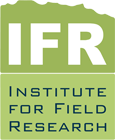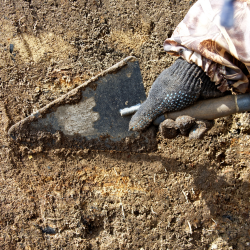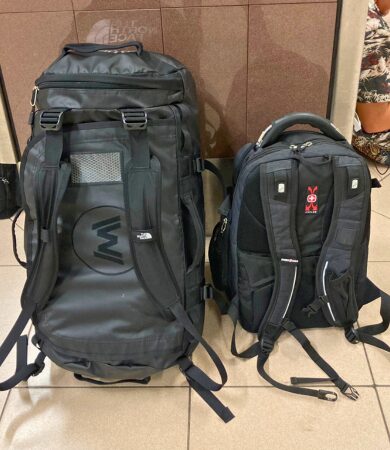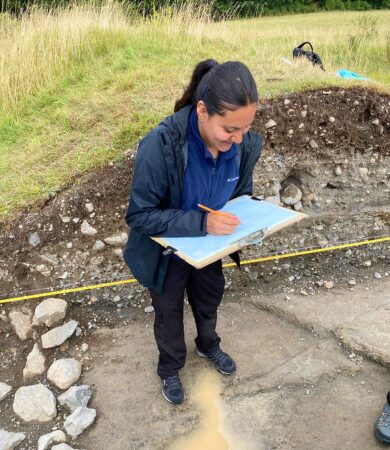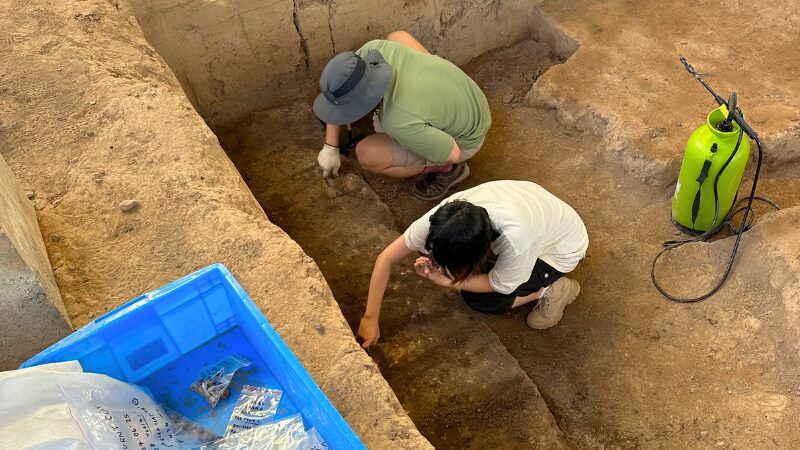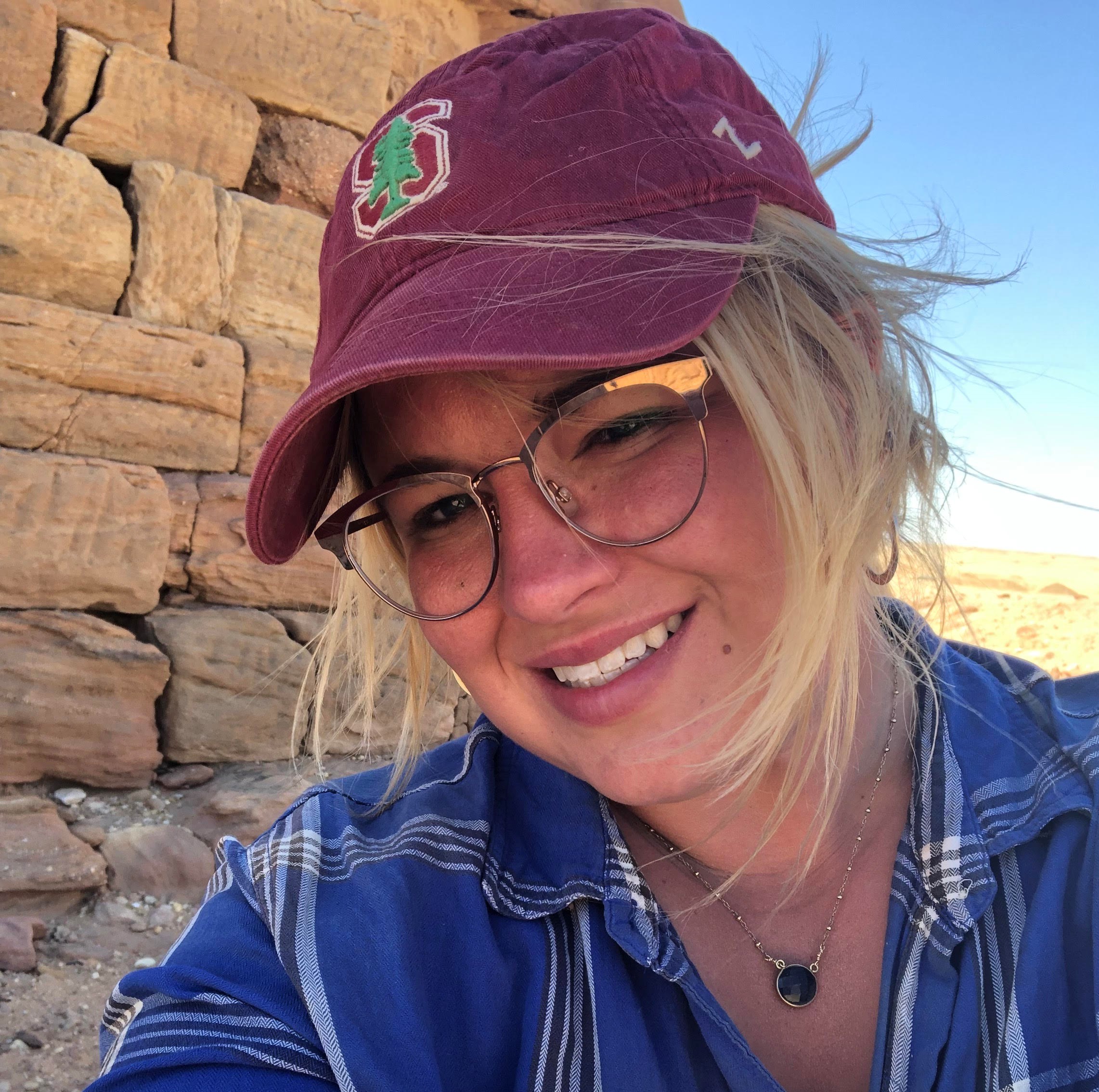
Meet Kate Rose
IFR Director of Programs
We are excited to welcome Kate Rose as the new Director of Programs at the Institute for Field Research!
A dedicated anthropological archaeologist, Kate specializes in landscape studies and ancient urbanism in the Near East and North Africa. With 15 years of field experience, she is passionate about the intersection of fieldwork and pedagogy, having served in various leadership roles on projects in Egypt, Sudan, Iraq, Turkey, Jordan, and Spain.
Kate joins IFR from her previous role as a postdoctoral researcher with the ERC DiverseNile Project at Ludwig-Maximilians-Universität München, where she employed innovative digital methods to enhance our understanding of Bronze Age Nubia. As a first-generation college student, she is committed to fostering mentorship opportunities and increasing accessibility in field education for the next generation of aspiring researchers and scientists. When she’s not digging, you can find her swimming and nurturing her lifelong love of water.
We are thrilled to have Kate on board and look forward to her impactful contributions to our mission at the Institute for Field Research!
Getting To Know Kate
Could you share your journey in archaeology? What inspired you to pursue this field?
Embarrassingly, I knew I wanted to be an archaeologist after I watched Indiana Jones with my brother and grandparents at eight years old. I never grew out of it, and by the time I was 16 my parents were sick and tired of me talking about how I wanted to be an archaeologist. They essentially wanted me to prove it, and tasked me with finding a field school to join. I am pretty sure their plan backfired; I found a Roman archaeology field school in Menorca, an island off the coast of Spain and pleaded with them to accept me despite being a high school student.
At the field school I excelled as an excavator and was invited back the next summer to serve as an on staff supervisor. By that time I was completely hooked. I began to develop intellectual curiosities in how ancient cities and spaces were designed, used, and reused. I knew I wanted to major in an archaeology program so I went off to Stanford University in the fall.
At Stanford my interests further crystallized and I began working at Neolithic sites in Jordan and Turkey, learned Arabic, and took classes in spatial analysis methods. I firmly set my sights on working in the broader Middle East and especially wanted to focus on Egypt. As an undergrad I studied abroad at Oxford University and took tutorials in the history and archaeology of ancient Egypt. As a senior I knew I wanted to start graduate school immediately after graduating.
I attended Harvard University for my PhD and began work at some of the most formative and important sites for my career; the ancient city of Tell el-Amarna in Egypt, the Theban necropolis in Luxor, and many sites in Sudan like the religious and urban center of Jebel Barkal. As a graduate student I also developed a love for teaching. For my dissertation I analyzed landscapes of ancient cemetery sites in Sudan, to understand how ancient people used natural features to design their spaces for the dead.
Now, the IFR feels like the perfect place for me to continue my research and apply my passion for fieldwork to our mission of transforming individuals and communities!
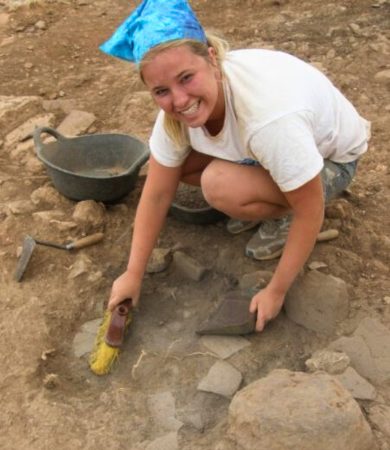
Kate excavating at her first field school in Menorca, Spain
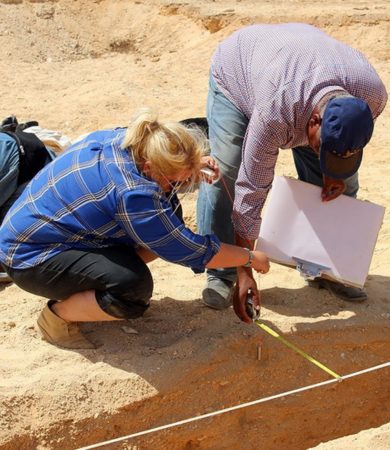
Kate training Eyptian archaeologist in mapping at Amarna
What is one of the most memorable experiences you’ve had during your time in field research?
Oh sooo many. It is true though that an archaeologist never forgets their first “significant” find. During my first field school in Spain, I was asked to excavate an ash-filled pit feature in the Roman city. Inside the feature I found a silver Visigoth cross. My field director and I were absolutely elated. I felt proud of this discovery not only because of the flashiness, but because I felt myself really understanding stratigraphy and how deposits form for the first time. It was an “aha” moment that brought the science and nuance of excavation into focus for me.
You’ve traveled extensively for your research. What are some of your favorite locations you’ve experienced as an archaeologist?
Jordan was a dream come true; I still remember exactly how I felt when I laid eyes on the Treasury at Petra for the first time at 18…filled with undeniable awe and love. Egypt of course is pretty unmatched. Cairo will always be my favorite city, I come alive in the maximalism and overwhelming energy. I would spend all day in the covered markets and coffee shops of the Khan el Khalili. However, Sudan truly feels like a second home. I started working and living with the people of El Kurru in 2015, and I miss the routines and connections of daily life in the village. My heart breaks for the people of Sudan as they endure the ongoing civil war. They are in my thoughts, always. #KeepEyesOnSudan.
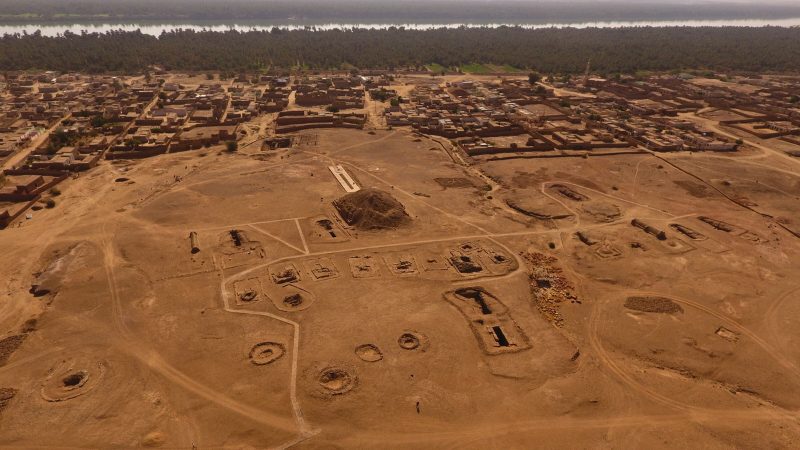
Drone shot of site at El Kurru, Sudan taken by Kate
What drew you to join our organization, and what excites you most about your new role?
I was drawn immediately to IFR’s genuine commitment to making field experiences and research accessible to students of varying backgrounds and identities. As someone from a first generation, low-income family, I wish the IFR existed when I was first navigating the landscape of field schools.
I am most excited about highlighting new and diverse people and projects. We should always strive to recognize the contributions of underrepresented communities in archaeology, and bring them to the table, particularly women and People of Color. I am excited for our student and program director communities to reflect the variety of cultures, perspectives, identities, and talents that are present in the world.
In your opinion, what’s one of the most pressing challenges facing archaeology today, and how can organizations like IFR help address it?
Definitely a big challenge is ensuring that the needs of archaeological sites and cultural resources are not in conflict with the needs of the local communities that live near and steward their heritage. Similarly, the impact of climate change on the archaeological record and local communities is of massive concern. Lastly, everyone should be aware of pseudoarchaeology and disinformation’s negative impact on the archaeological record. The most important way that IFR and other organizations can help is to increase opportunities for more people to access and learn about the past and cultural heritage. Our aim is not to create armies of perfectly formed archaeologists and field scientists (although that would be awesome). We aim to foster a deep understanding of and respect for field research, so that individuals from diverse spaces and backgrounds will take these values and knowledge and share them with their communities.
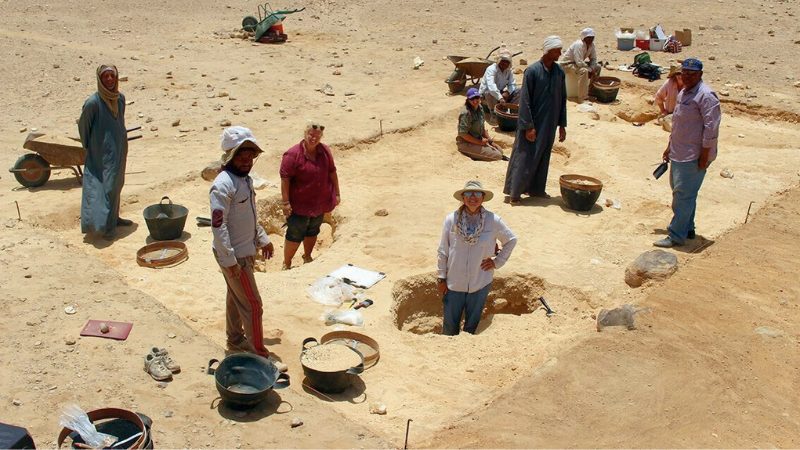
Team shot at Tell el Amarna, Egypt
What aspect of field school are you most excited for IFR students to experience as they embark on their own adventures in the field?
You will meet the best people on field projects. Your favorite people, the people you will carry with you all throughout your life. A field project is an entirely unique environment; the isolation from your daily routines and responsibilities and total immersion in new and challenging skills can be disregulating but also beautiful. I am excited for you all to experience the growth and self-actualization that comes from being on a field project. You learn so much about yourself when you commune with the past and people from all over the world.
And honestly, it is just really fun getting absolutely filthy. Embrace the chaos of being completely caked in dirt. You won’t regret it.
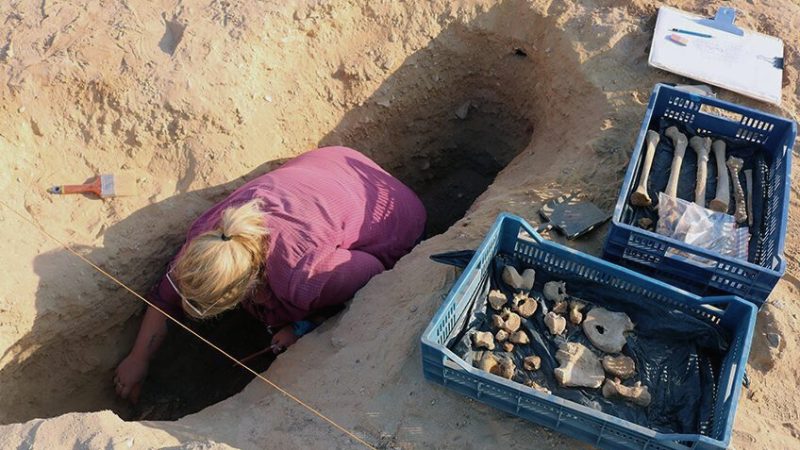
Excavating non-elite burials at el Amarna, Egypt
And lastly, let’s hear three things you never travel to the field without!
Share this article
Follow us
Latest articles
May 27, 2025
